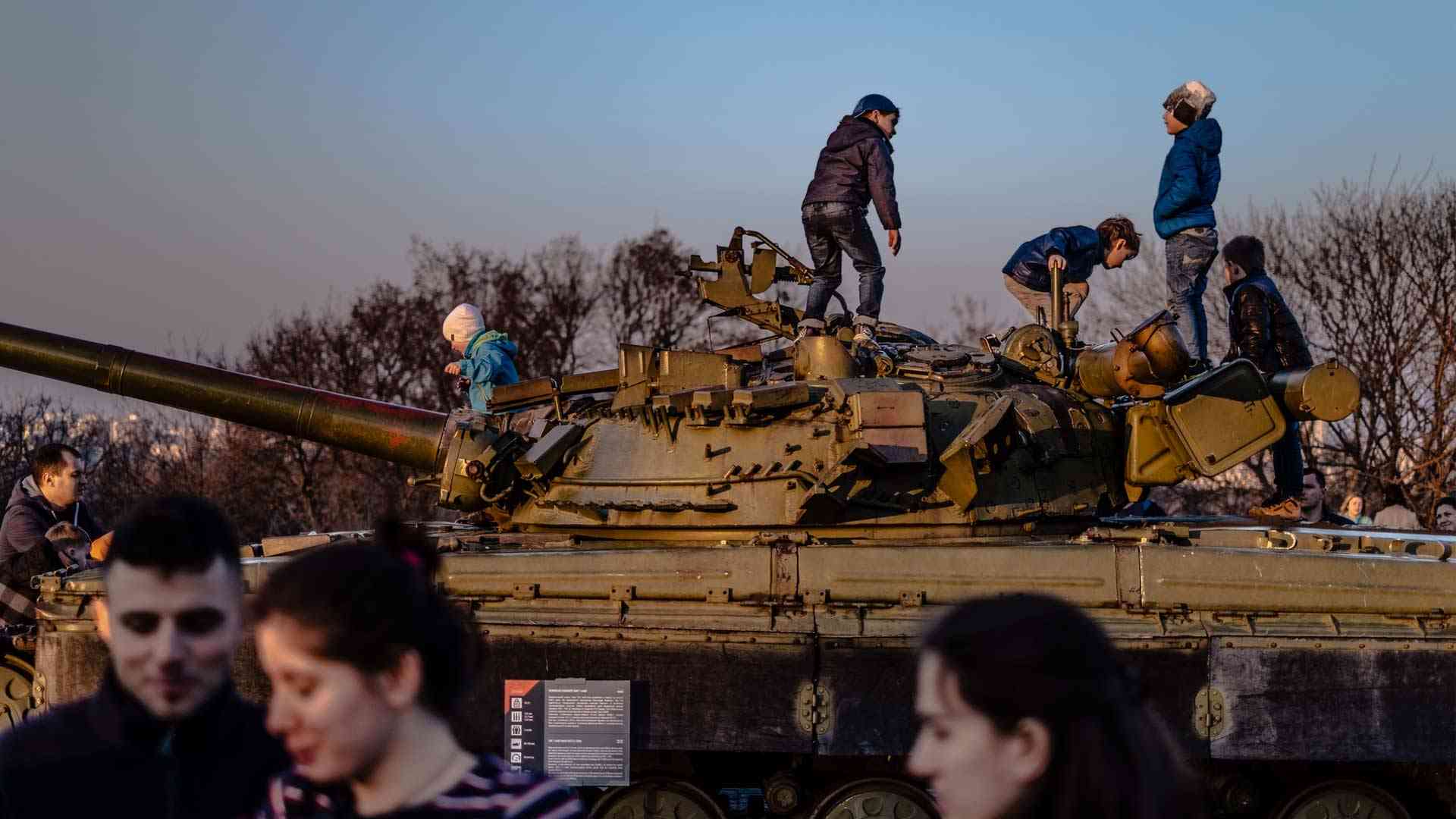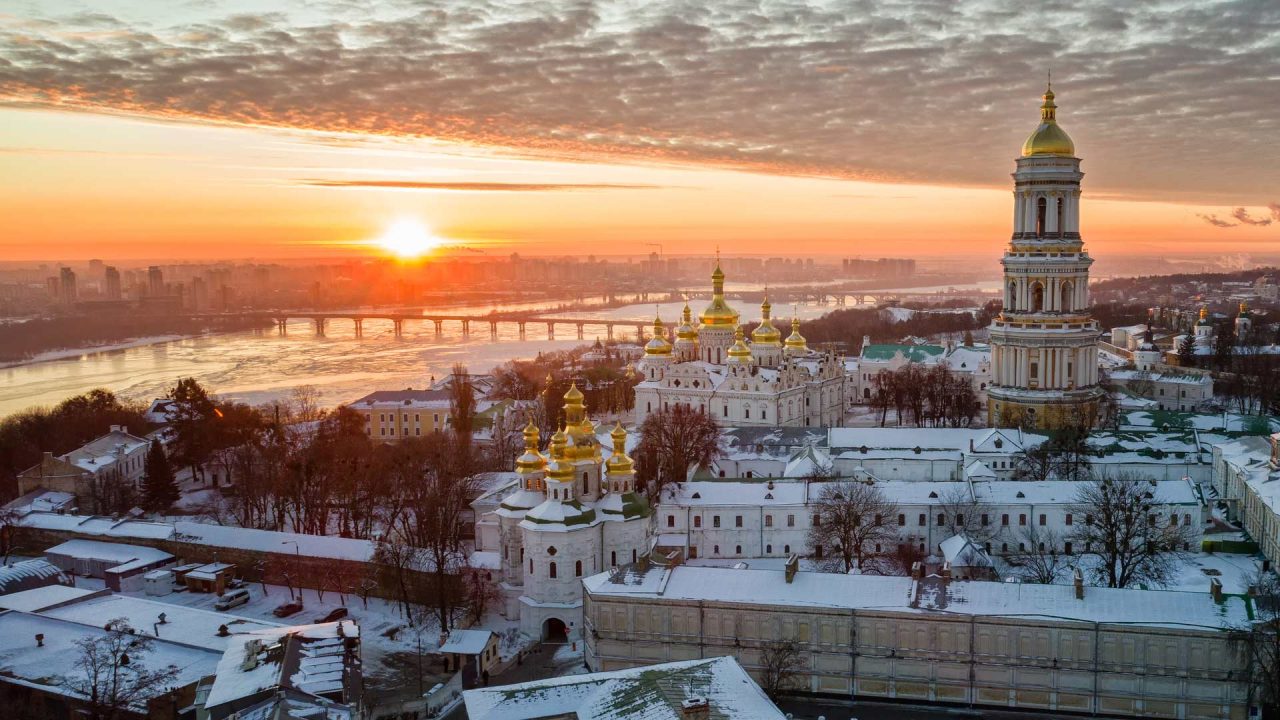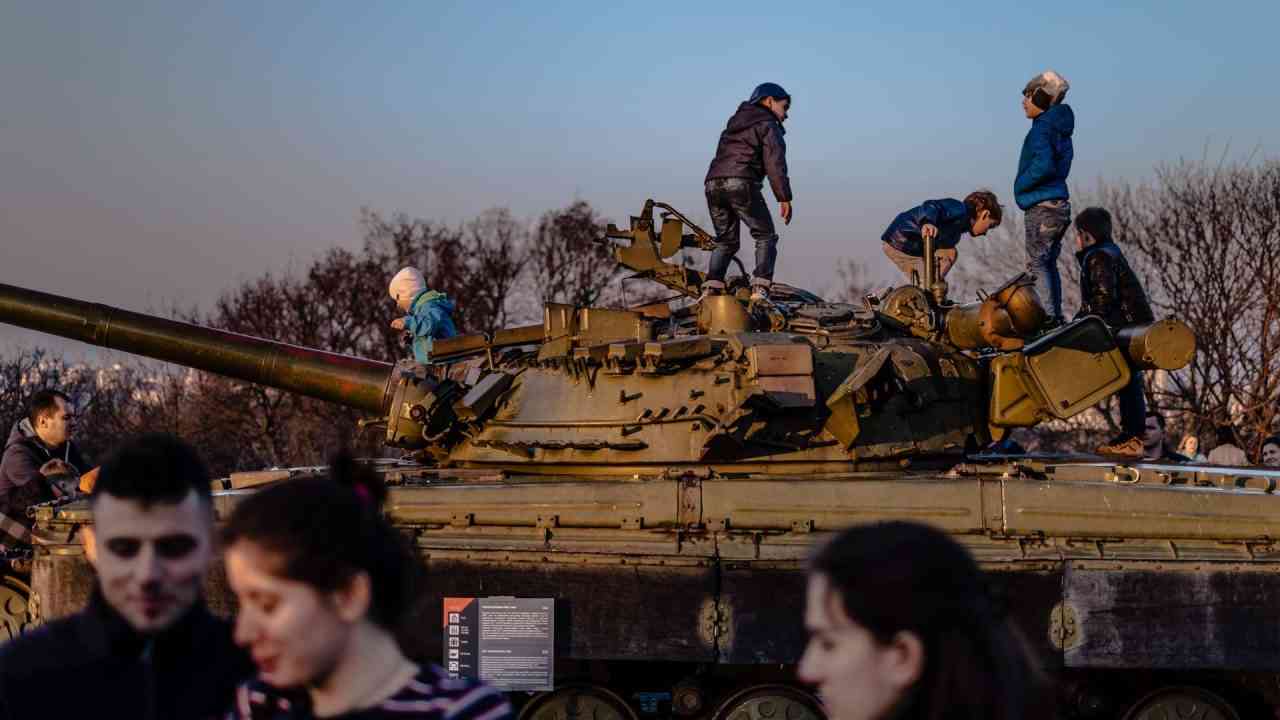
Vladimir Lenin characterized the NEP (New Economic Policy) in 1922 as an economic system that would include “a free market and capitalism, both subject to state control,” while socialized state enterprises would operate on “a profit basis”— an economic policy similar to today’s economic system in China. Many entrepreneurs responded to this policy with a great enthusiasm, including my grandfather Roman Umansky. In fact, NEP became an engine of free market, economic growth, and accumulation of the capital by many risk takers in the early years of the former Soviet Union.

In 1939, my grandfather and six other Jewish families cooperated in building a “red-brick two-story house” in the mid-town Kiev, about 15 minutes, by trolley, from the center city (Khreshchatik). This was a quite luxury house by standards of the 1930s in the Soviet Union – reasonable amenities, including: central city water and sewer system, central electricity and each family had a small storage and garden adjacent to the “red-brick house.”
These were hard-working, happy and friendly families, living in peace with each other and the world around them until an eruption of the German invasion. On June 22, 1941, at 4 a.m. Kiev was bombarded by German Luftwaffe. By August of the same year, the German army advanced to the steps of Kiev. As a result of this invasion, all families in the “red-brick house” were dispersed to all directions of the compass and some fought courageously against brutal invaders. My grandfather was killed in defense of Kiev in 1941. My mother, aunt and grandmother were evacuated to Gorky (a city on the upper Volga River – today’s Nizhniy Novgorod. Many families were evacuated to Uzbekistan, Kazakhstan and Siberia. Some Jews, who could not escape Kiev on time, were captured and executed in Babiy Yar by Nazis.
Babiy Yar is a ravine in Kiev and a site of massacres carried out by Nazi Germany’s forces. The first massacres took place Sept. 29-30, 1941, killing nearly 34,000 Jews.
I know for certain that this brutal invasion of Ukraine will hurt Russia and Russian citizens to its core.
Kiev was largely destroyed during German occupation. But many historic sites survived, including St. Sophia Cathedral, Golden Gate, Prince Vladimir Monument, Bogdan Khmelnitsky Monument, Taras Shevchenko Monument, The Holy Dormition Kiev Caves Lavra, St. Michael’s Golden Domed Monastery, St. Vladimir’s Cathedral, St. Nicholas Cathedral, St. Andrew’s Church, Vydubtskiy Monastery, Marinsky Palace, National University, Opera and Ballet Theatre and some other historic sites.
After Kiev was liberated by the Soviet Army in November of 1943, many residents of the city came back to their homes and began a reconstruction of Kiev and normalization of their lives. My mother, aunt and grandma also came back from an evacuation, where they worked in the military factory to claim their property. However, per their arrival to Kiev, they discovered that their apartment was occupied by a Ukrainian family who refused to evict the property. My aunt, Lilya, a tough woman who survived a harsh evacuation in Gorky, told me once: “I opened a balcony door and a front door and threatened intruders that they have to choose one of the two ways out – balcony or front door. They walked out through the front door.”
In fact, some Ukrainians and Russians – for various political, economic or ideological reasons – collaborated with German Nazis during the war. Perhaps the most famous was “The Russian Liberation Army” (or Vlasov Army) under the General Vlasov. This was a collaborationist formation, primarily composed of anti-Soviet Ukrainians and Russians. This army, predominantly, operated in Western Ukraine. After the war, many members of the “Vlasov Army” settled in West Ukraine and some fled Ukraine to South and North America, changing their identities and hiding for the war crimes.
We will never forget who they are and what some of them did to us, but we must forgive them.
I was born and raised in the “red-brick house” in the post-War time. I lived in this house when Sputnik was launched in 1957; de-Stalinization was announced in the late 1950s; Yuriy Gagarin explored the space in 1961; and President Nixon visited Kiev in 1972. I lived in this house during my school and college years. I left the “red-brick house” to the West in March of 1977. Soon after my departure, my family and other Jewish families of the “red-brick house” followed my footsteps to the free world — USA.
Memories of World War II and German occupation of Kiev for many years effected communication between various social groups and ethnicities in the former Soviet Union, including Ukraine. Jewish families, especially, preferred to stick together, to choose their own, and somewhat mistrusted outsiders. Holocaust and betrayal were deeply rooted in their memories. My grandfather, Roman Umansky, was captured by German Nazis and brutally killed in Nazi-occupied Kiev in 1941. He was betrayed by the Ukrainian woman who worked for him in his barber shop before the war erupted. She called the German SS on him for the reward of a small ration of food.
It was a shocking experience for my family, when my sister, Rimma, brought a Ukrainian man to our home as her prospective husband. This Ukrainian man, Anatoly, asked my father, in a traditional way, for his permission to marry my sister. Initially, my parents were reluctant to accept Anatoly. Recognizing my parents hesitation, my sister cried out, “There are many stars in the sky. But I don’t want many stars, I want only one, this one.”
Later, we had a family meeting, discussing Anatoly’s marriage proposal. My sister was not present in this meeting. My father, Boris Dolitsky, was emotional and indecisive, “I can say YES, and I can say NO,” he kept repeating. My grandmother had the last word.
ALASKA WATCHMAN DIRECT TO YOUR INBOX
“We will never forget who they are and what some of them did to us, but we must forgive them. Let her marry Anatoly,” she said with a look of concern.
A big wedding took place in the summer of 1972 in Kiev, with nearly two hundred guests attending, enjoying plentiful Jewish food, cheerful music and dances. In fact, my sister Rimma and Anatoly will celebrate the 50th anniversary of their marriage in June of this year. They have lived happily in Philadelphia since 1978, surrounded by their children and grandchildren.
Today’s brutal invasion of Ukraine and bombardment of Ukrainian cities, including Kiev, by the Russian army is shocking to everyone in the United States and around the world. I cannot quite settle these atrocities in my head. I cannot predict what will be the final outcome of this war. However, I know for certain that this brutal invasion of Ukraine will hurt Russia and Russian citizens to its core. Indeed, Ukraine will be victorious in this war because they fight for their freedom and right to exist. And, eventually, Ukraine will emerge as a free European nation.
This brutal invasion of Ukraine will be remembered by many Ukrainians, Russians and others for generations. Nevertheless, when the dust settles, we must recall a great wisdom, “We will never forget who they are and what some of them did to us, but we must forgive them.”
The views expressed here are those of the author.








6 Comments
Mr. Dolitsky, obviously you know the “weight” of war and hatred. I sincerely apologize for my vitriolic postings regarding Putin’s invasion of Ukraine. Again, I apologize for my belligerence! A. N. Gottschalk
To A.N. Gottschak: Apology is excepted.
To A.N. Gottschalk: Correction –accepted
Ukraine is a corrupt hell hole that the Globalists use to launder their money through.
Please follow up with a book about the red brick house. Your words are appreciated and you have a unique gift for writing.
Thanks. I’ll try.